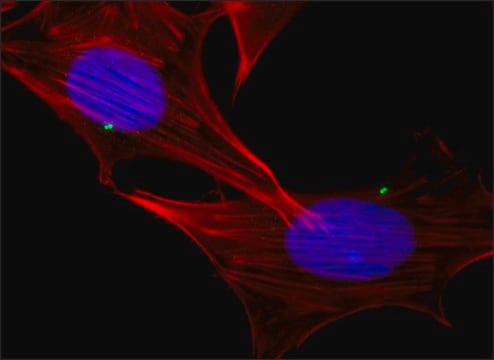C7604
Anti-γ-Tubulin-Cy3™ antibody produced in rabbit
affinity isolated antibody, buffered aqueous solution
Synonym(s):
Anti-γ-Tubulin
About This Item
Recommended Products
biological source
rabbit
Quality Level
conjugate
CY3 conjugate
antibody form
affinity isolated antibody
antibody product type
primary antibodies
clone
polyclonal
form
buffered aqueous solution
mol wt
antigen 48 kDa
species reactivity
human, chicken
technique(s)
direct immunofluorescence: 1:200 using methanol/acetone-fixed chicken fibroblats cells or HeLa cells (human).
UniProt accession no.
shipped in
wet ice
storage temp.
2-8°C
target post-translational modification
unmodified
Gene Information
human ... TUBG1(7283) , TUBG2(27175)
Looking for similar products? Visit Product Comparison Guide
Related Categories
General description
Immunogen
Application
Biochem/physiol Actions
Physical form
Legal Information
Disclaimer
Not finding the right product?
Try our Product Selector Tool.
Storage Class Code
10 - Combustible liquids
WGK
WGK 3
Flash Point(F)
Not applicable
Flash Point(C)
Not applicable
Choose from one of the most recent versions:
Already Own This Product?
Find documentation for the products that you have recently purchased in the Document Library.
Articles
Microtubules of the eukaryotic cytoskeleton are composed of a heterodimer of α- and β-tubulin. In addition to α-and β-tubulin, several other tubulins have been identified, bringing the number of distinct tubulin classes to seven.
Our team of scientists has experience in all areas of research including Life Science, Material Science, Chemical Synthesis, Chromatography, Analytical and many others.
Contact Technical Service







